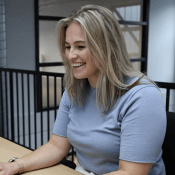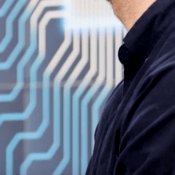When it comes to IoT, there’s nothing wrong with human intervention
Many people will likely put 30MHz under the umbrella term of Internet of Things. Granted, we’re a wireless sensor company working with connected devices. I’ve always felt like a bit of an outsider in that category. As an engineer, when the industry predicts billions of devices online by 2020, I focus on the network limitations and challenges to scale. It’s possible, it just won’t be easy. As a CEO, when the industry gets excited about actuators, I find myself saying: “ok, but is there really a business case?”
Pragmatic IoT means focusing on the business case, not novelty
Actuators automatically carry out a task when a certain condition is met. Think an automatic opening or closing of curtains, or your car calling home to raise the temperature as you approach. Novel, certainly, as IoT just begins to be commonplace. But beyond hobbyists– is there a large-scale business case for this technology? Why would you pay significant contributions to work out on machines (connected, of course) and not walk to the curtains? Why have your call home when it takes as much time to change the room temperature as it does to take off your coat?
In the end, there is only the business case. If there is no return, there will be no application.
The business case is not for acting, it’s for knowing what to act on
Across industries, the biggest challenge businesses face is not the need to automate minor tasks. It’s ensuring that they have the best, most up to date information on how to act, and when. Automatically tuning a greenhouse system– as opposed to doing so manually– does relatively little for an agricultural business’ bottom line. Saving a greenhouse’s worth of crops by knowing when temperature or humidity changes, and adjusting the temperature accordingly is business critical.
The business case for IoT is in data
There’s nothing wrong with automation, and business cases for automation in industrial contexts can certainly be made. But when it comes to offering an advantage to businesses, the business case for IoT is in data, first and foremost. When analytics offer true insights on the physical world, the Internet of Things can augment human capabilities, making businesses more productive and effective– with or without automation.
Jurg van Vliet is CEO of 30MHz


30MHz is typing… Our extended support team is ready to chat!
At 30MHz we think it’s important that our users can use our platform in an optimal way. At times you may have questions and you would like some help from our support team. Email and our support page filled with helpful articles were your go to’s. But we thought it was time for something extra… ...Read more
New 30MHz connect casing: How we protect your tech
To make sure your dataflow is fully protected, 30MHz introduces a new connect casing: waterproof, dust proof and even resistant to hits. This special shield will last longer and ensure a reliable dataflow from the connected sensor. What does that full protection mean? That’s what we will explain in this article. Watertight: resistant to wetness ...Read more
Digital Twin at QING
For the innovation project Digital Twin from NXTGEN Hightech, several 30MHz colleagues came together with QING to exchange ideas about digital twins within the Agrifood sector of the future. Want to know more? Check out the (Dutch) video:Read more


